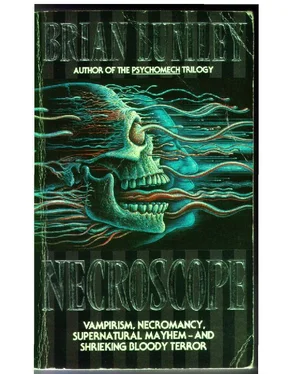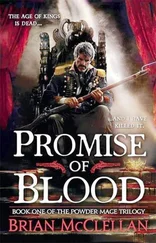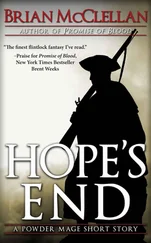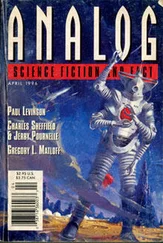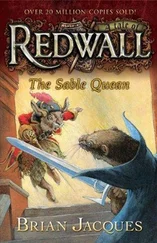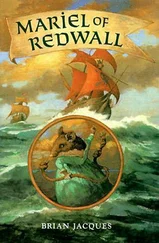curtains shut. He half-wished it could be different — more than half-but… it couldn't.
It wasn't that he hated women or was frightened of them, he didn't and wasn't. It was more that he couldn't understand them, and with so many other things to do — so much else to learn and try to understand — he simply had no time to waste on dubious or untried pleasures. Or so he told himself. And anyway, his needs were different to those of other men, his emotions less volatile. Except when he needed them to be. But what he'd lost in common sensuality, he more than made up for in uncommon sensitivity. Though even that would seem a paradox to anyone who knew his work.
As for those other things he had to learn or at least try to understand — they were legion. Borowitz was happy with him the way he was, yes, but Dragosani was not. He felt that at the moment his talent was one-dimensional, that it lacked any real depth. Very well, he would give it the very greatest depth, a depth unplumbed for half a millennium! Out there in the night lay one who had secrets unique, one who in life commanded monstrous magics, and who even now, in death, was undead. And there, for Dragosani, lay the fount of all knowledge. Only when he had drained that well would there be time for the rest of his sorely neglected 'education'.
It was midnight now, the witching hour. Dragosani wondered how far the sleeper's dreams reached out beyond the borders of the dark glade, wondered if they might meet half-way. The moon was up and full, and all the stars were bright; high in the mountains wolves prowled and howled even now, as they had five hundred years ago; all the auspices were right.
He lay back in his bed, lay very still, and pictured the shattered tomb where roots groped like fossil tentacles and the trees leaned inward to hide their secret. He pictured it, and out loud but also in his mind said:
'Old one, I've come back. I bring you hope in return for knowledge. It's the third year, and only four remain. How goes it with you?'
Outside in the night a wind sprang up, blowing down from the mountains. Trees soughed as their branches bowed a little, and Dragosani heard a sighing behind the rafters over his head. But as quickly as it had risen the wind fell, and in its place:
Ahhh! Dragosaaani! Is it you, my son? Are you then returned to me in my solitude, Dragosaaani …?
'Who else would it be, old devil? Yes, it is Dragosani. I have grown stronger, I am become a small power in the world. But I want more! You hold the ultimate secrets of power, which is why I have returned and why I will continue to return, until… until…'
Four more years, Dragosani. And then… then you shall sit upon my right hand, and I shall teach you many things. Four years, Dragosani. Four years. Ahhh!
'Long years for me, old dragon, for I must wake each morning and sleep each night and count all the hours between. And time is slow. But for you…? How has it been, old one, this last year?'
It would have been the merest moment, fleeting, speed ing, gone! — had you not disturbed me, Dragosani. But you have given me… yearnings. Here I lay and for fifty years hated, and lusted for revenge on them that put me here. And for fifty more I desired only to be up and about my business, which is to put down my enemies. And then… then I thought me: but my murderers are no more. They are bones in graves of their own now, or dust blown on the winds. And in another hundred years… what of even the sons of my enemies then? Ah! Well might I ask! What of the legions who came up against these mountains in ages past and met my father's fathers waiting? What of the Lombard and the Bulgar, the Avar… and the Turk? Ah! — a brave fighter in his time, the Turk — he was my enemy, but no more. And so five hundred years fleeting by, for I was forgetting the glories just as a grandfather forgets his own infancy, until I had forgotten — almost. Until I was forgotten — almost! And what then, when there was nothing left of me but a word in a book, and when the book itself crumbled to dust? Why, then surely I would have no reason to be at all! And perhaps glad of it. And then you came, a mere boy, but a boy whose name… was… Dragosaaaniiii …
As the voice faded so the wind sprang up again, the two merging and dying away together. Dragosani thought of what was to be done and shivered in his bed. But this was his chosen course, this his destiny. And fearing that he had lost the other, he called out urgently:
'Old one, you of the Dragon-banner, of the bat and the dragon and the devil — are you there?'
Where else would I be, Dragosani? the voice seemed to mock. Yes, 1 am here. I quicken in my forsaken place, in this earth which was my life. I thought I was forgotten, but a seed was sown and blossomed, and you remembered and knew me. And by your name, so I knew you, Dragosaaaniiii…
Tell me again!' Dragosani was eager. Tell me how it was. My mother, my father, their coming together. Tell me it.'
Twice you have heard it, the voice in his head sighed. And would you hear it again? Do you hope to seek them out? Then I cannot help you. Their names were of no importance to me; I knew them not, knew nothing of them except the heat of their blood. Aye, and of that I tasted the merest drop, a small pink splash. But afterwards there was that of them in me, and that of me in them — which came out in you. Don't ask after them, Dragosani. I am your father …
‘Would you walk on earth, and breathe, and slake your thirst again, old one? Would you slaughter your enemies and drive them back as before — as your ancestors before you — and this time as your own man, not merely a sellsword to ungrateful Dracul princelings? If you would, then trade with me. Tell me of my parents.'
Sometimes a bargain sounds more like a threat, Drago sani. And would you threaten me? The voice hissed in his head like ice on the strings of an ill-tuned violin. You dare speak to me — you dare remind me — of Vlads, Radus, Draculs and Mirceas? You call me a sellsword? Boy, in the end my so-called 'masters' feared me more than the Turk himself! Which is why they weighed me down in iron and silver and buried me in this secret place, in these same cruciform hills which I had defended with my blood. For them I fought, aye — for the sake of their 'Holy cross', their 'Christianity' — but now I fight to be free of it. Their treachery is my pain, their cross the dagger in my heart!
‘A dagger which I can draw for you! Your enemies have come again, old devil, and none to drive them out save you. And there you lie, impotent! The crescent of the Turk is grown into the sickle of another, and what he cannot cut down he hammers flat. I am a Wallach no less than you, whose blood is older than Wallachia itself. Nor will I suffer the invader. Well, and now there's a new invader and our leaders are puppets once more. So how is it to be? Are you content, or would you fight again? The bat, the dragon, the devil — against the hammer and the sickle!'
(A sigh, whispering with the wind in the rafters.) Very well, I will tell you how it was, and how you … became.
It was… springtime. I could feel it in the soil. The growing time. The year… but what are years to me? A quarter-century ago, anyway.
'It was 1945,' said Dragosani. 'The war would soon be at an end. The Szgany were here, fled into the mountains for their refuge, as they've done right down the centuries. Refugees from the German war machine, they were here in their thousands. And the Transylvanian plateau shielded them, as always. The Germans had been rounding them up — Szgany, Romany, Szekely, Gypsy, call them what you will — all over Europe, for slaughter along with the Jews in the death-camps. Stalin had deported many minority peoples, alleged "collaborators," from the Crimea and Caucasus. That's when it was, and that's when it stopped. Spring 1945, but we had surrendered more than six months earlier than that. Anyway, the end was in sight, the Germans were on the run. By the end of April, Hitler had killed himself
Читать дальше
